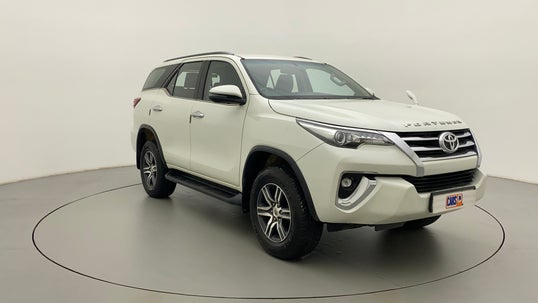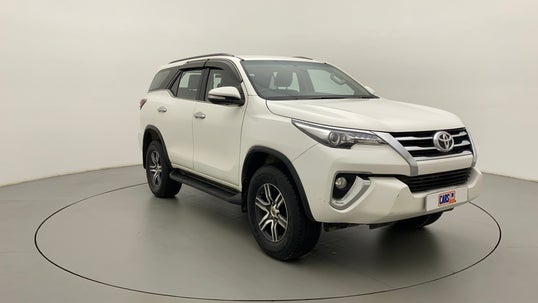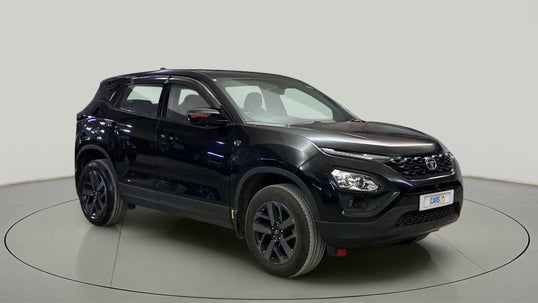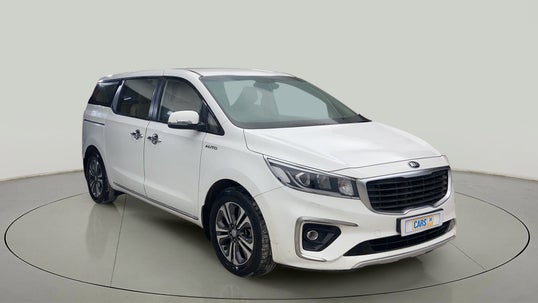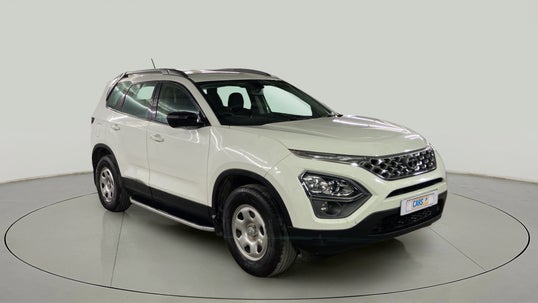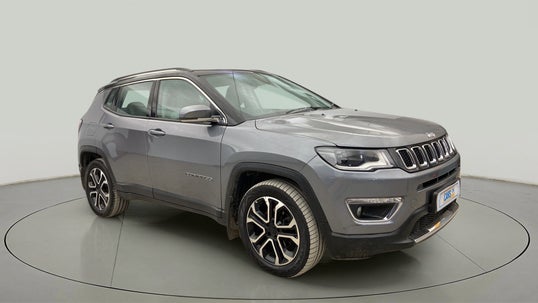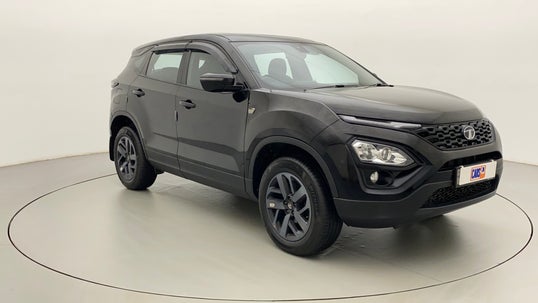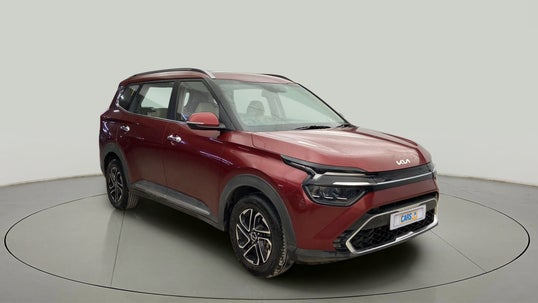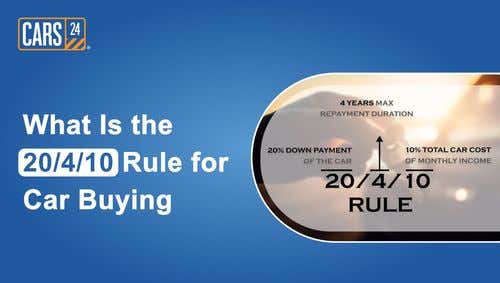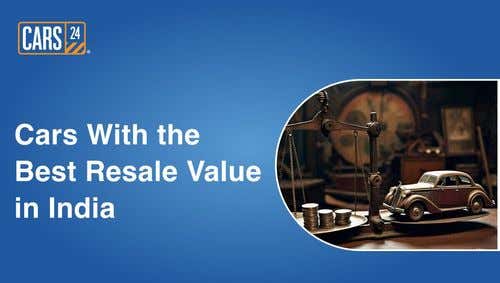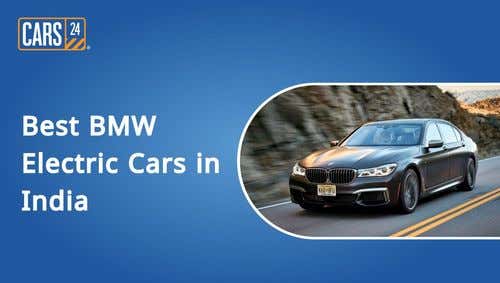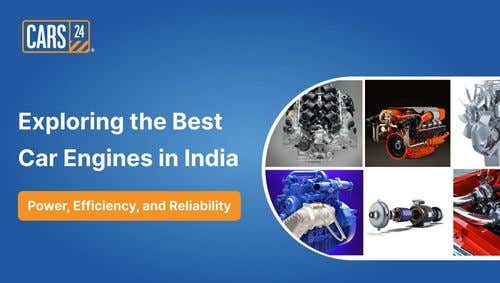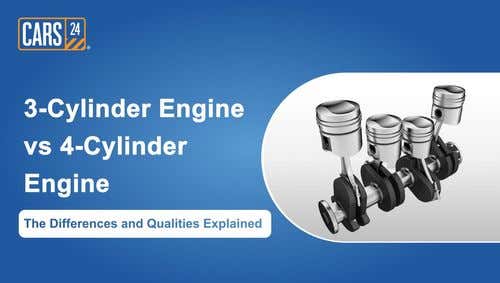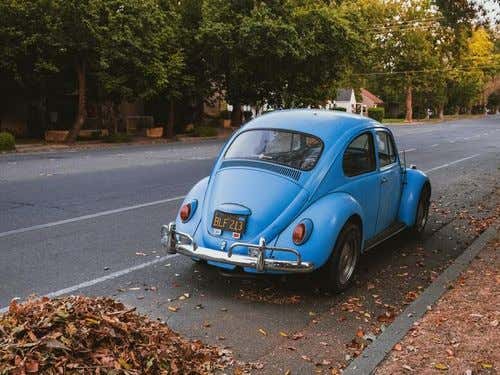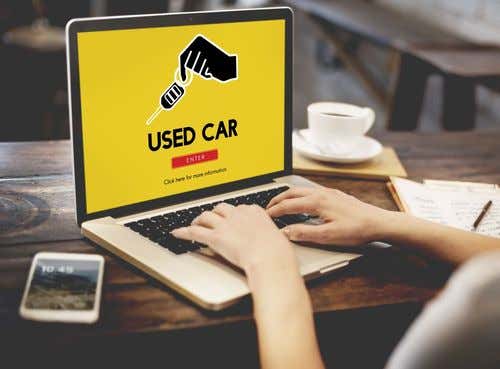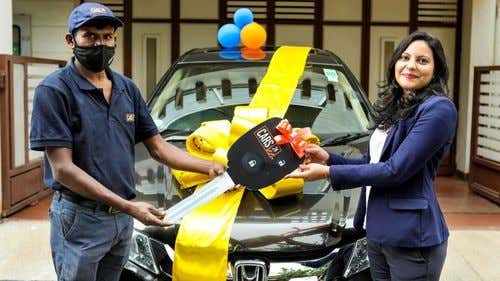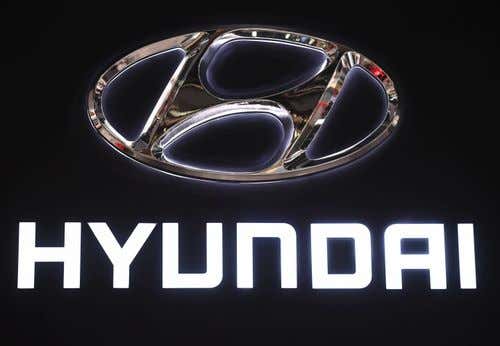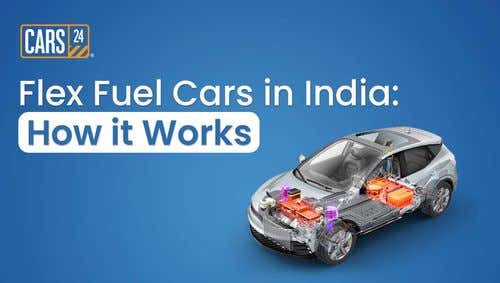Car Paint Protection Film (PPF): Everything you need to know

Updated on: 3rd January, 2024 IST
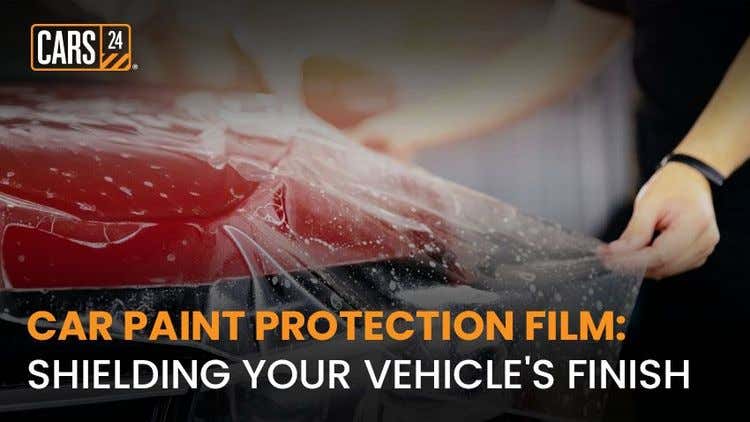
Your car’s paint is like the skin we humans have—a layer of beautiful colour on the skeletal structure of the car. And just like our skin needs protection from pollution and the harmful UV rays of the sun, so does the paint of a car.
That’s where a car paint protection film (PPF) comes into the picture. It’s like sunscreen for your car but with added benefits, protecting it from unforgiving obstacles like stones, scratches, and the relentless blaze of the sun, all poised to tarnish that immaculate beauty.
In this blog, we'll look into the intricacies of PPF, exploring the various types available, its many advantages, and what makes it the go-to choice for car enthusiasts. So, let's step into the spotlight, where your car is the star, and PPF is its perfect dance partner, ensuring the show goes on!
Table of Contents
- What is a Paint Protection Film?
- Types of Paint Protection Film
- Advantages of Car Paint Protection Film (PPF)
- Drawbacks of Paint Protection Film (PPF)
- How Much Does Paint Protection Film Cost?
- Common Types of Damages in Paint Protection Film
- Best Paint Protection Film Brands in India
- Paint Protection Film Installation Process
- How to Maintain a Car Paint Protection Film
- The Bottom Line
- FAQs
What is a Paint Protection Film?
Paint Protection Film (PPF) is like an invisible shield for your car. It's a clear, sticky layer applied to your car's painted parts, keeping them safe from various hazards on the roads.
Indian roads are a tough place for cars. They face threats like stones that can chip the paint, scratches that ruin the look, and the strong Indian sun that can fade the paint with those pesky UV rays. PPF is the hero here, standing guard silently. It shields your car from stone chips, stops scratches from spoiling the paint, and acts as a sunblock to prevent fading.
Beyond preserving your car's flawless appearance, PPF plays a pivotal role in safeguarding its long-term value.
Types of Paint Protection Film
Paint Protection Film (PPF) comes in all shapes and sizes, each tailored to distinct preferences and needs. From self-healing wonders to those with a matte finish, the options are diverse. You'll also find PPF that adds a pop of colour and full-body protection.
Let's take a closer look into each type to help you make an informed choice.
1. Self-Healing PPF
- This is the pinnacle of PPFs, equipped with a special topcoat that boasts elastomeric properties
- Materials that exhibit elastic properties, allowing them to return to their original shape after deformation, are Elastomeric in nature
- Self-healing PPF possesses the incredible ability to 'heal' minor scratches or swirl marks when exposed to heat or sunlight
- The film's molecular structure enables it to regain its original state, making those pesky scratches vanish
2. Standard PPF
- This is the reliable workhorse of PPF options and provides excellent protection against stone chips and minor scratches
- Standard PPF is available in different thicknesses to suit your specific requirements
3. Matte PPF
- For those who prefer a non-reflective, non-glossy finish, matte PPF is the perfect choice
- It offers robust protection while providing your car with a unique and muted appearance, making it an instant favourite
4. Coloured PPF
- If you want to infuse a touch of personal style, coloured PPF is available in a range of hues
- It allows you to match your car's colour or add a bold contrast
Also Read: Teflon Coating for Cars
Advantages of Car Paint Protection Film (PPF)
PPF offers a set of valuable qualities, including its transparency, durability, UV resistance, and ease of cleaning. Some variants even come with self-healing properties, ensuring long-lasting protection for your car.
Let's take a look at some of these features in detail:
1. Transparency
- PPF is designed to be nearly invisible, allowing your car's original colour and finish to shine through without distortion, preserving its aesthetic charm
- This transparency is a hallmark of high-quality PPF, ensuring your car's appearance remains unchanged
2. Durability
- PPF is engineered to be exceptionally tough and resilient
- It provides a robust defence against a variety of potential sources of damage, including stone chips, minor scratches, and environmental elements
3. UV Resistance
- One of PPF's essential functions is its role as a shield against the sun's harmful ultraviolet (UV) rays
- These rays can lead to paint fading and degradation, but PPF acts as a barrier, ensuring that your car's original colour and finish remain intact
4. Easy Maintenance
- PPF simplifies the process of keeping your car looking its best
- Its smooth surface makes it more challenging for dirt, grime, and environmental contaminants to adhere
- As a result, routine washing becomes hassle-free, reducing the time and effort required to maintain your car's appearance
5. Self-Healing (in some types)
- Certain PPF variants possess an exceptional self-healing ability
- When exposed to heat or sunlight, they can autonomously repair minor scratches and blemishes
- This means that your car can continue to look flawless, even after encountering minor incidents on the road
6. Longevity
- PPF's durability, when coupled with proper care and maintenance, ensures it can last for several years
- This longevity is a testament to its ability to preserve your car's appearance over time, making it a valuable investment for car owners
Drawbacks of Paint Protection Film (PPF)
While PPF offers a range of advantages, it's essential to consider its potential drawbacks. Let's take a look at some of the most common drawbacks of PPF:
1. Cost
- High-quality PPF can be a significant investment, especially when opting for full-body coverage
- In addition to the cost of the film itself, professional installation further adds to the overall expenditure
- However, many car owners find this cost justifiable in light of the protection and value retention PPF provides
2. Professional Installation Required
- PPF application is a meticulous process that demands precision and expertise
- It's strongly recommended to have PPF installed by experienced professionals to ensure the best results
- A poorly applied film can lead to visible imperfections, bubbles, or misalignment, compromising the overall appearance and effectiveness of the film
- Professional installation may come at an additional cost, but it is an investment in the film's proper functionality and aesthetics
3. Not 100% Invisible
- While PPF is engineered to be nearly invisible, it's important to note that under specific lighting conditions or particular viewing angles, you might detect its presence
- However, it's essential to understand that this minor visibility trade-off is typically considered negligible when weighed against the substantial protection it offers
- Most car owners find that the benefits of PPF far outweigh this minimal drawback
4. Limited Self-Healing (in some types)
- It's crucial to be aware that not all PPF types offer self-healing properties
- If you opt for a PPF variant without this feature, some scratches may not completely vanish, although they are still less likely to harm your car's original paint
- Understanding the specific type of PPF you're choosing is essential to managing expectations regarding scratch repair capabilities
Also Read: 6 Tips To Protect Your Car From Extreme Heat And Sunlight
How Much Does Paint Protection Film Cost?
The cost of PPF in India is influenced by several key factors, each playing a significant role in determining the final price. To provide a more comprehensive understanding of PPF pricing, let's look at some of these factors:
1. Type of Film
- The type of PPF you choose plays a crucial role in the overall cost
- Different types of PPF offer varying features and levels of protection, and their prices can differ accordingly
- For example, high-end self-healing PPF is generally more expensive than standard variants
2. Vehicle Size and Make
- The size and make of your vehicle have a direct impact on the amount of PPF required
- Larger vehicles, such as SUVs and luxury cars, typically require more film, which translates to a higher cost
- Additionally, certain makes or models may have more complex contours, making installation more time-consuming and potentially more expensive
3. Professional Installation Fees
- Professional installation is strongly recommended to ensure the correct application of PPF, as the expertise and precision of the installer significantly affect the final result
- Professional installers may charge a higher fee, depending on their experience and reputation
- Choosing a reputable installer might come with a higher price tag but often guarantees a more precise and effective application
As a rough estimate, the average cost of PPF in India falls within the range of ₹40,000 to ₹1,00,000. However, it's essential to note that costs can vary widely based on the specific combination of factors mentioned above.
To obtain an accurate quote for your PPF installation, it's advisable to consult with reputable professionals and discuss your unique requirements. By doing so, you can make an informed decision based on your budget and the level of protection you desire for your vehicle.
Also Read: Difference Between Car Wax and Polish
Common Types of Damages in Paint Protection Film
While PPF is a reliable safeguard, it's not immune to wear and tear. Over time, various issues may surface, affecting the film's functionality and appearance. Let's take a closer look at some of the common types of damages to better equip you for maintenance and care:
1. Yellowing
- Certain PPF formulations may develop a subtle yellowish tint over time, potentially altering your car's pristine appearance
- It's important to note that this issue is more prevalent in older PPF versions and can vary in severity
2. Peeling
- Inadequate installation or neglect of proper maintenance can result in the film peeling at its edges
- Not only does this detract from your car's aesthetic, but it can also pave the way for further damage, making addressing this issue a priority
3. Scratches (for non-self-healing types)
- While self-healing PPF can often mend minor scratches autonomously, non-self-healing variants may not possess this ability
- Therefore, it's essential to be vigilant about scratches on non-self-healing PPF and take steps to address them promptly to maintain your car's flawless look
Best Paint Protection Film Brands in India
When choosing a paint protection film (PPF) brand for your car, it is important to select a reputable brand that offers high-quality products. Some of the top PPF brands available in India include 3M, Xpel, SunTek, and Avery Dennison. Each of these brands offers a range of PPF options, varying in features and performance.
Let's take a look at some of the features of these brands that make them a favourite among car enthusiasts:
1. 3M
- 3M is a globally recognized brand that offers a wide range of PPF options, including its popular Scotchgard™ Paint Protection Film Pro Series
- 3M's PPF is known for its durability, self-healing properties, and resistance to scratches, UV rays, and chemicals
2. Xpel
- Xpel is another leading brand of PPF that offers a variety of products to suit different needs and budgets
- Xpel's PPF is known for its high-gloss finish, resistance to yellowing, and self-healing properties
3. SunTek
- SunTek is a US-based brand that offers a range of PPF products, including its popular Top Coat™ Paint Protection Film
- DunTek's PPF is known for its scratch resistance, UV protection, and clear finish
4. Avery Dennison
- Avery Dennison is a global leader in labelling and materials science
- The company's Supreme Protection Film (SPF) is a high-performance PPF that is known for its durability, self-healing properties, and resistance to scratches, UV rays, and chemicals
Also Read: Types of Car Scratches and How to Fix Them
Paint Protection Film Installation Process
The installation of PPF is a meticulous process that involves several crucial steps. Let's take a look at some of the crucial steps:
1. Surface Preparation
- The car's surface must be meticulously cleaned to ensure there are no contaminants that could hinder the film's adhesion
- This step involves a thorough washing and sometimes even a clay bar treatment to remove any embedded contaminants
2. Cutting the Film
- PPF is custom-cut to fit your specific car's make and model
- Precision is key, and professional installers use specialised software and cutting equipment to achieve an exact fit
3. Application
- The film is carefully applied to the car's surface
- Skilled installers take their time to ensure that the film is free of bubbles or any imperfections
- Proper alignment is crucial to ensure that the entire car is protected
4. Trimming
- Once the film is applied, any excess is carefully trimmed away
- This step ensures that the PPF fits your car like a second skin, with no overhanging edges
5. Curing
- The PPF needs time to cure and adhere completely to the car's surface
- Curing allows the adhesive to bond securely, making the film an integral part of your car's exterior
How to Maintain a Car Paint Protection Film
Proper maintenance is key to ensuring your PPF continues to provide the desired protection and maintains its appearance. Here are some of the most basic yet effective PPF maintenance tips:
1. Regular Washing
- Routine washing of your car is essential to remove dirt and debris that can accumulate on the film
- Use a mild, pH-neutral car shampoo, and room temperature water to avoid any potential damage to the PPF
2. Avoid Harsh Chemicals
- Avoid using harsh chemicals or abrasive tools for cleaning, as these can damage the film
- Stick to gentle cleaning agents and soft microfiber cloths
3. Waxing the PPF
- Applying a high-quality automotive wax designed for PPF can help maintain its shine and protection
- Waxing enhances the film's hydrophobic properties, making it easier to clean and repel water and contaminants
Also Read: Teflon Coating Vs Ceramic Coating
The Bottom Line
In the world of car care, Paint Protection Film (PPF) stands as a guardian of your vehicle's beauty and value. Whether you're navigating the bustling streets of Delhi or cruising the winding roads of Kerala, PPF is your car's trusted shield against the elements.
While it may come with an initial investment, the protection and peace of mind it offers are invaluable. Protecting your car's exterior with PPF is not just a choice; it's a statement of your commitment to preserving your car's appearance and value for years to come.
As you consider the advantages, types, and top brands, remember that PPF is more than a protective layer; it's your car's insurance policy against the harsh Indian climate and road conditions. With the right PPF, your car remains in pristine condition, and its value remains intact.
FAQs
The longevity of PPF can vary depending on factors like the type of film, quality, and maintenance. Quality PPF can last anywhere from 5 to 10 years or even longer when well cared for.
PPF is a highly beneficial choice for those who wish to protect their car's paint from potential damage. It is not only good but highly recommended for car owners looking to maintain their vehicle's appearance and value.
The cost of PPF installation varies based on several factors and can range from ₹40,000 to ₹1,00,000 or more. The price is influenced by the type of film, the size of your car, and professional installation costs.
Yes, PPF is unquestionably worth the investment for those who want to safeguard their car's appearance and value. It offers comprehensive protection and ease of maintenance, making it a wise choice for car owners.
PPF functions as a transparent, adhesive shield that absorbs and dissipates the impact of stones, scratches, and UV rays, protecting your car's original paint underneath.
PPF typically needs replacement when it becomes damaged, discoloured, or reaches the end of its lifespan, which can be anywhere from 5 to 10 years or more, depending on the quality and maintenance. Regularly inspecting the film for signs of wear and tear is essential to determine when replacement is necessary
Recently Added Cars to Buy
Other Blogs
- Recent
- Featured
Popular Cities to Sell Car

